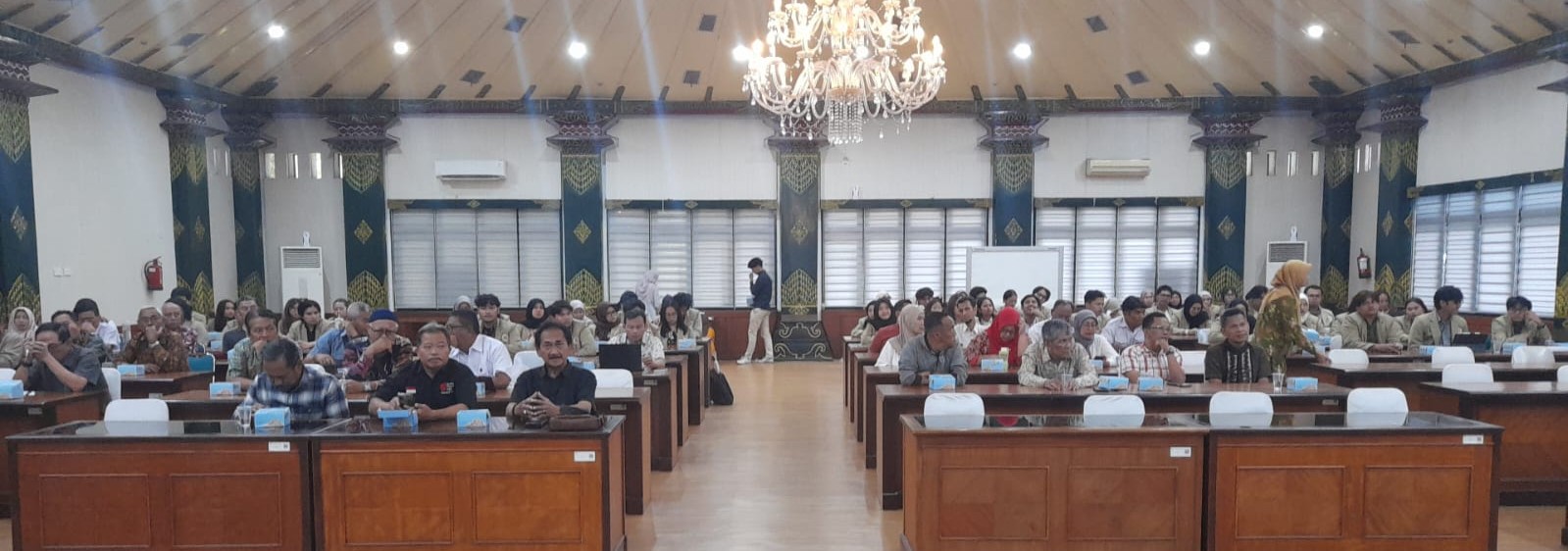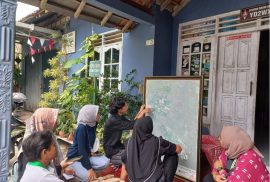Yogyakarta, 31 October 2025 – The Undergraduate Program of Urban and Regional Planning (PWK), Universitas Gadjah Mada, once again held a guest lecture entitled “Towards Sustainable Industrial Areas: Concepts, Governance, and Development Strategies of the Batang Integrated Industrial Estate (KIT Batang).” The lecture was conducted offline and was open to the public at the DTAP Building, Universitas Gadjah Mada. Beyond a conventional guest lecture, the event was also conducted in collaboration with the Student Association of Urban and Regional Planning Engineering (HMTPWK) UGM as part of the Company Visit x Industrial Estate Planning Course.
SDGs 6-clean water and sanitation
Yogyakarta, 24 October 2025 – The Department of Urban and Regional Planning (PWK), Universitas Gadjah Mada, once again hosted an online guest lecture featuring Jelle Thery, MLA, a Landscape Architect and Founder of Urban Nature. The lecture was entitled “Integrated Water Resilience, Designing for Biodiversity, and Creating Happy Places for People (Forming Accessible Places Where Nature and People Find a Balance).”
In this lecture, Jelle Thery discussed landscape architecture concepts centered on a harmonious relationship between humans and nature. The main issue highlighted was the importance of Regenerative Design, an approach that focuses not only on sustainability but also on the restoration of natural ecosystems. This approach integrates urban water management (water resilience), the enhancement of biodiversity, and the creation of healthy and enjoyable public spaces (happy places). In this context, Jelle emphasized that nature should be understood as a system intrinsically connected to humans, rather than merely a backdrop, and that design must foster a symbiotic relationship between the two.
Students from the Urban Area Planning Studio in the Urban and Regional Planning Program (PWK), Universitas Gadjah Mada (UGM) actively participated in the planning activities for the Code River area, organized by the Division of Housing and Settlement Areas, Department of Public Works, Housing, and Settlement Areas (PUPKP) of Yogyakarta City. This initiative is part of the Yogyakarta City Government’s efforts to formulate an integrated direction for the development and management of the Code River area. Through their involvement, students had the opportunity to connect academic analysis with the real-world needs and dynamics of urban planning in the field.
The Urban and Regional Planning Program (PWK) at Universitas Gadjah Mada is collaborating with the Yogyakarta City Government’s Department (Dinas Pekerjaan Umum, Perumahan, dan Kawasan Permukiman) to revitalize the area surrounding the Code river (as known as Kali Code). This initiative is part of the 2025/2026 odd-semester Urban Planning Studio, engaging students as emerging planners to envision the future of one of the city’s most iconic areas.
The collaboration offers strategic benefits for both sides: the city government gains support in preparing an integrated, research-based master plan, while UGM’s academic community, especially PWK students, has the opportunity to learn directly from a real-world case. Students will be involved in stakeholder engagement, enabling them to address on-site issues while testing their technical and social planning skills.
As rapid urbanization continues to shape Southeast Asia, the need for sustainable water management becomes increasingly critical. Addressing this challenge, PolyUrbanWaters is a groundbreaking research and project network funded by the German Federal Ministry of Education and Research (BMBF). It brings together academic institutions, municipalities, government agencies, civil society, and private-sector stakeholders from Indonesia, Cambodia, Laos, Thailand, Vietnam, and Germany to develop a polycentric approach to urban water management.







